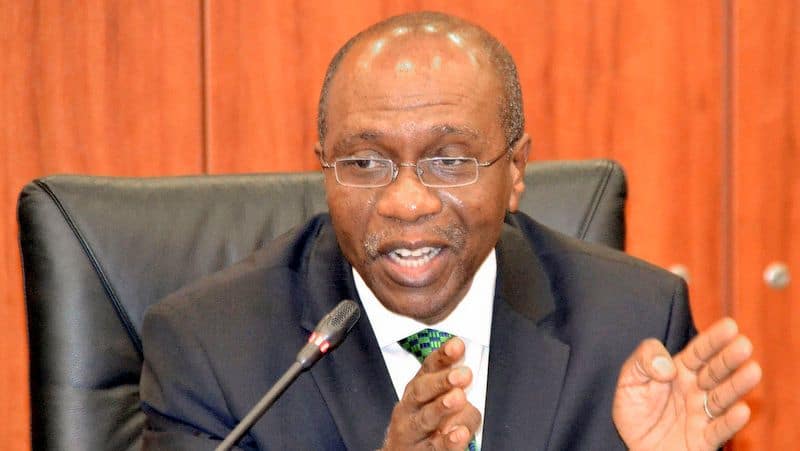Nigeria News
Anchors Borrowers’ Scheme Has Created 2.5m Jobs – Emefiele Warns Against Suspending The Scheme

Central Bank of Nigeria’s Governor, Godwin Emefiele, has said that about 2.5 million jobs has been created across the country by the bank’s Anchor Borrowers’ Programme (ABP.
President Muhammadu Buhari launched the ABP, an agricultural on November 17, 2015, and “intended to create a linkage between anchor companies involved in the processing and smallholder farmers (SHFs) of the required key agricultural commodities”.
He advocated that the programme has been effective in correcting the imbalances in Nigeria, adding that it would be risky to supend the bank’s policy suite.
“The CBN recently introduced the Real Sector Support fund; a facility meant to provide cheap funding at no more than 9 percent to new projects in the Agric and Manufacturing sectors; aimed at boosting output and creating jobs,” Emefiele said this at the Annual Bankers dinner at the weekend.
“In the agriculture sector, the Anchor Borrower Programme (ABP) has ensured that Nigeria emerged from being a net importer of rice to becoming a major producer of rice, supplying key markets in neighboring countries.
“As at October 2018, a total number of 862,069 farmers cultivating about 835,239 hectares, across 16 different commodities, have so far benefited from the Anchor Borrowers programme, which has generated 2,502,675 jobs across the country.”
Emefiele assured that the ABP will be used for the production of other farm produce within the country, including palm oil and fisheries.
“It is in light of the success of the Anchor Borrowers Program with regards to cultivation of rice and maize that the Monetary Policy Committee in its last meeting on the 21st of November 2018 recommended that the Anchor Borrowers program be applied to other areas such as palm oil, tomatoes, and fisheries to mention a few,” Emefiele added.
“Our efforts at supporting small-scale farmers and SMEs is based on our awareness of the critical role they can play in supporting our economic recovery and growth, as well as in creating job opportunities for millions of Nigerians.”



![[BREAKING] Emefiele: Court Okays FG's Withdrawal Of Firearm Charge Against Suspended CBN Governor](https://www.naijanews.com/wp-content/uploads/2023/08/CBNs-Godwin-Emefiele-smiling-400x240.jpeg)
![[BREAKING] Emefiele: Court Okays FG's Withdrawal Of Firearm Charge Against Suspended CBN Governor](https://www.naijanews.com/wp-content/uploads/2023/08/CBNs-Godwin-Emefiele-smiling-80x80.jpeg)






